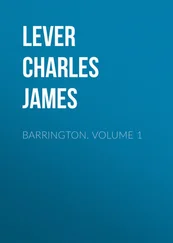Charles Lever - Roland Cashel, Volume II (of II)
Здесь есть возможность читать онлайн «Charles Lever - Roland Cashel, Volume II (of II)» — ознакомительный отрывок электронной книги совершенно бесплатно, а после прочтения отрывка купить полную версию. В некоторых случаях можно слушать аудио, скачать через торрент в формате fb2 и присутствует краткое содержание. Жанр: literature_19, foreign_antique, foreign_prose, на английском языке. Описание произведения, (предисловие) а так же отзывы посетителей доступны на портале библиотеки ЛибКат.
- Название:Roland Cashel, Volume II (of II)
- Автор:
- Жанр:
- Год:неизвестен
- ISBN:нет данных
- Рейтинг книги:5 / 5. Голосов: 1
-
Избранное:Добавить в избранное
- Отзывы:
-
Ваша оценка:
- 100
- 1
- 2
- 3
- 4
- 5
Roland Cashel, Volume II (of II): краткое содержание, описание и аннотация
Предлагаем к чтению аннотацию, описание, краткое содержание или предисловие (зависит от того, что написал сам автор книги «Roland Cashel, Volume II (of II)»). Если вы не нашли необходимую информацию о книге — напишите в комментариях, мы постараемся отыскать её.
Roland Cashel, Volume II (of II) — читать онлайн ознакомительный отрывок
Ниже представлен текст книги, разбитый по страницам. Система сохранения места последней прочитанной страницы, позволяет с удобством читать онлайн бесплатно книгу «Roland Cashel, Volume II (of II)», без необходимости каждый раз заново искать на чём Вы остановились. Поставьте закладку, и сможете в любой момент перейти на страницу, на которой закончили чтение.
Интервал:
Закладка:
A faint smile, so faint that it conveyed no expression to her eyes, was Lady Kilgoff’s acknowledgment of these last words.
“Have you finished, sir?” said she, as, after a pause of some seconds, he stood still.
“Not yet, madam,” replied he, dryly.
“In that case, sir, would it not be as well to tell the man who is lingering yonder to leave this? except, perhaps, it may be your desire to have a witness to your words.”
Linton started, and grew deadly pale; for he now perceived that the man must have been in the conservatory during the entire interview. Hastening round to where he stood, his fears were at once dispelled; for it was the Italian sailor, Giovanni, who, in the multiplicity of his accomplishments, was now assisting the gardener among the plants.
“It is of no consequence, madam,” said he, returning; “the man is an Italian, who understands nothing of English.”
“ You are always fortunate, Mr. Linton,” said she, with a deep emphasis on the pronoun.
“I have ceased to boast of my good luck for many a day.”
“Having, doubtless, so many other qualities to be proud of,” said she, with a malicious sparkle of her dark eyes.
“The question is now, madam, of one far more interesting than me.”
“Can that be possible, sir? Is any one’s welfare of such moment to his friends – to the world at large – as the high-minded, the honorable, the open-hearted Mr. Linton, who condescends, for the sake of a warning to his young friends, to turn gambler and ruin them; while he has the daring courage to single out a poor unprotected woman, without one who could rightly defend her, and, under the miserable mask of interest, to insult her?”
“Is it thus you read my conduct, madam?” said he, with an air at once sad and reproachful.
“Not altogether, Mr. Linton. Besides the ineffable pleasure of giving pain, I perceive that you are acquitting a debt, – the debt of hate you owe me; because – But I cannot descend to occupy the same level with you in this business. My reply to you is a very short one. Your insult to me must go unpunished; for, as you well know, I have not one to resent it. You have, however, introduced another name in this discussion; to that gentleman I will reveal all that you have said this day. The consequences may be what they will, I care not; I never provoked them. You best know, sir, how the reckoning will fare with you.”
Linton grew pale, almost lividly so, while he bit his lip till the very blood came; then, suddenly recovering himself, he said: “I am not aware of having mentioned a name. I think your Ladyship must have been mistaken; but” – and here he laughed slightly – “you will scarce succeed in sowing discord between me and my old friend, Lord Charles Frobisher.”
“Lord Charles Frobisher!” echoed she, almost stunned with the effrontery.
“You seem surprised, madam. I trust your Ladyship meant no other.” The insolence of his manner, as he said this, left her unable for some minutes to reply, and when she did speak, it was with evident effort.
“I trust now, sir, that we have spoken for the last time together. I own – and it is, indeed, humiliation enough to own it – your words have deeply insulted me. I cannot deny you the satisfaction of knowing this; and yet, with all these things before me, I do not hate – I only despise you.”
So saying, she moved towards the door; but Linton stepped forward, and said: “One instant, madam. You seem to forget that we are pledged to walk through the rooms; our amiable friends are doubtless looking for us.”
“I will ask Mr. Cashel to be my chaperon another time,” said she, carelessly, and, drawing her shawl around her, passed out, leaving Linton alone in the conservatory.
“Ay, by St Paul! the work goes bravely on,” cried he, as soon as she had disappeared. “If she ruin not him and herself to boot, now, I am sore mistaken. The game is full of interest, and, if I had not so much in hand, would delight me.”
With this brief soliloquy, he turned to where the Italian was standing, pruning an orange-tree.
“Have you learned any English yet, Giovanni?”
A slight but significant gesture of one finger gave the negative.
“No matter, your own soft vowels are in more request here. The dress I told you of is now come, – my servant will give it to you; so, be ready with your guitar, if the ladies wish for it, this evening.”
Giovanni bowed respectfully, and went on with his work, and soon after Linton strolled into the garden to muse over the late scene.
Had any one been there to mark the signs of triumphant elation on his features, they would have seen the man in all the sincerity of his bold, bad heart. His success was perfect. Knowing well the proud nature of the young, high-spirited woman, thoroughly acquainted with her impatient temper and haughty character, he rightly foresaw that to tell her she had become the subject of a calumny was to rouse her pride to confront it openly. To whisper that the world would not admit of this or that, was to make her brave that world, or sink under the effort.
To sting her to such resistance was his wily game, and who knew better how to play it? The insinuated sneers at the class to which she had once belonged, as one not “patented” to assume the vices of their betters, was a deep and most telling hit; and he saw, when they separated, that her mind was made up, at any cost and every risk, to live down the slander by utter contempt of it Linton asked for no more. “Let her,” said he to himself, “but enter the lists with the world for an adversary! I ‘ll give her all the benefits of the best motives, – as much purity of heart, and so forth, as she cares for; but, ‘I ‘ll name the winner,’ after all.”
Too true. The worthy people who fancy that an innate honesty of purpose can compensate for all the breaches of conventional use, are like the volunteers of an army who refuse to wear its uniform, and are as often picked down by their allies as by their enemies.
CHAPTER III. A PARTIAL RECOVERY AND A RELAPSE
Such a concourse ne’er was seen
Of coaches, noddies, cars, and jingles,
“Chars-a-bancs,” to hold sixteen,
And “sulkies,” meant to carry singles.
It is an old remark that nothing is so stupid as love-letters; and, pretty much in the same spirit, we may affirm that there are few duller topics than festivities. The scenes in which the actor is most interested are, out of compensation, perhaps, those least worthy to record; the very inability of description to render them is disheartening too. One must eternally resort to the effects produced, as evidences of the cause, just as, when we would characterize a climate, we find ourselves obliged to fall back upon the vegetable productions, the fruits and flowers of the seasons, to convey even anything of what we desire. So is it Pleasure has its own atmosphere, – we may breathe, but hardly chronicle it.
These prosings of ours have reference to the gayeties of Tubbermore, which certainly were all that a merry party and an unbounded expenditure could compass. The style of living was princely in its splendor; luxuries fetched from every land, – the rarest wines of every country, the most exquisite flowers, – all that taste can suggest, and gold can buy, were there; and while the order of each day was maintained with undiminished splendor, every little fancy of the guests was studied with a watchful politeness that marks the highest delicacy of hospitality.
If a bachelor’s house be wanting in the gracefulness which is the charm of a family reception, there is a freedom, a degree of liberty in all the movements of the guests, which some would accept as a fair compromise; for, while the men assume a full equality With their host, the ladies are supreme in all such establishments. Roland Cashel was, indeed, not the man to dislike this kind of democracy; it spared him trouble; it inflicted no tiresome routine of attentions; he was free as the others to follow the bent of his humor, and he asked for no more.
Читать дальшеИнтервал:
Закладка:
Похожие книги на «Roland Cashel, Volume II (of II)»
Представляем Вашему вниманию похожие книги на «Roland Cashel, Volume II (of II)» списком для выбора. Мы отобрали схожую по названию и смыслу литературу в надежде предоставить читателям больше вариантов отыскать новые, интересные, ещё непрочитанные произведения.
Обсуждение, отзывы о книге «Roland Cashel, Volume II (of II)» и просто собственные мнения читателей. Оставьте ваши комментарии, напишите, что Вы думаете о произведении, его смысле или главных героях. Укажите что конкретно понравилось, а что нет, и почему Вы так считаете.












